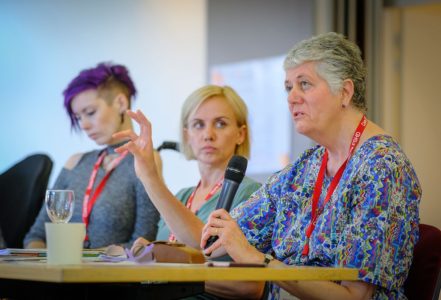To coincide with World Rare Disease Day FSHD Patients across Europe say what they want from clinical trials
Announcement by FSHD Europe

FSHD Europe is pleased to publish the Lay Report of the European Patient Survey where 1147 FSHD patients across Europe responded to say what they see as most important for any treatment to target. These are:
- Stopping the progression of the disease – 100% of all respondents wanted this
- Regaining strength – over 50% of respondents said this was important
- Improving mobility – 40% of respondents thought this was useful
- Reduction in fatigue – over 35% of respondents wanted a treatment to address this
Patients were also asked about what would encourage or discourage them from taking part in clinical trials and whether they were prepared to undertake invasive procedures such providing blood samples or having an MRI scan.
Sheila Hawkins, President of FSHD Europe says: “The survey/study also asked patients about what would motivate them to take part in clinical trials, and what would put them off getting involved. Generally people are keen to take part but they prefer trials where they are kept informed of the outcomes, where travelling is reduced (either distance or the number of visits to the trial site.
This report will be invaluable to any company planning clinical trials for FSHD in Europe and shows that patients are eager to take part in trials”
This survey was commissioned by FSHD Europe, which represents FSHD patient organizations in Germany, France, Italy, the Netherlands, Spain and the UK. However, respondents came from 26 countries across Europe, showing the reach of FSHD Europe and its ability to represent European patients. It was carried out by the John Walton Muscular Dystrophy Research Centre, part of the University of Newcastle and received financial support from Facio-Therapies, Fulcrum Therapeutics and Roche.
The lay report for patients and other members of the public is published today, February 28, 2023, and the full scientific report will be published later this year.


Leave a Reply